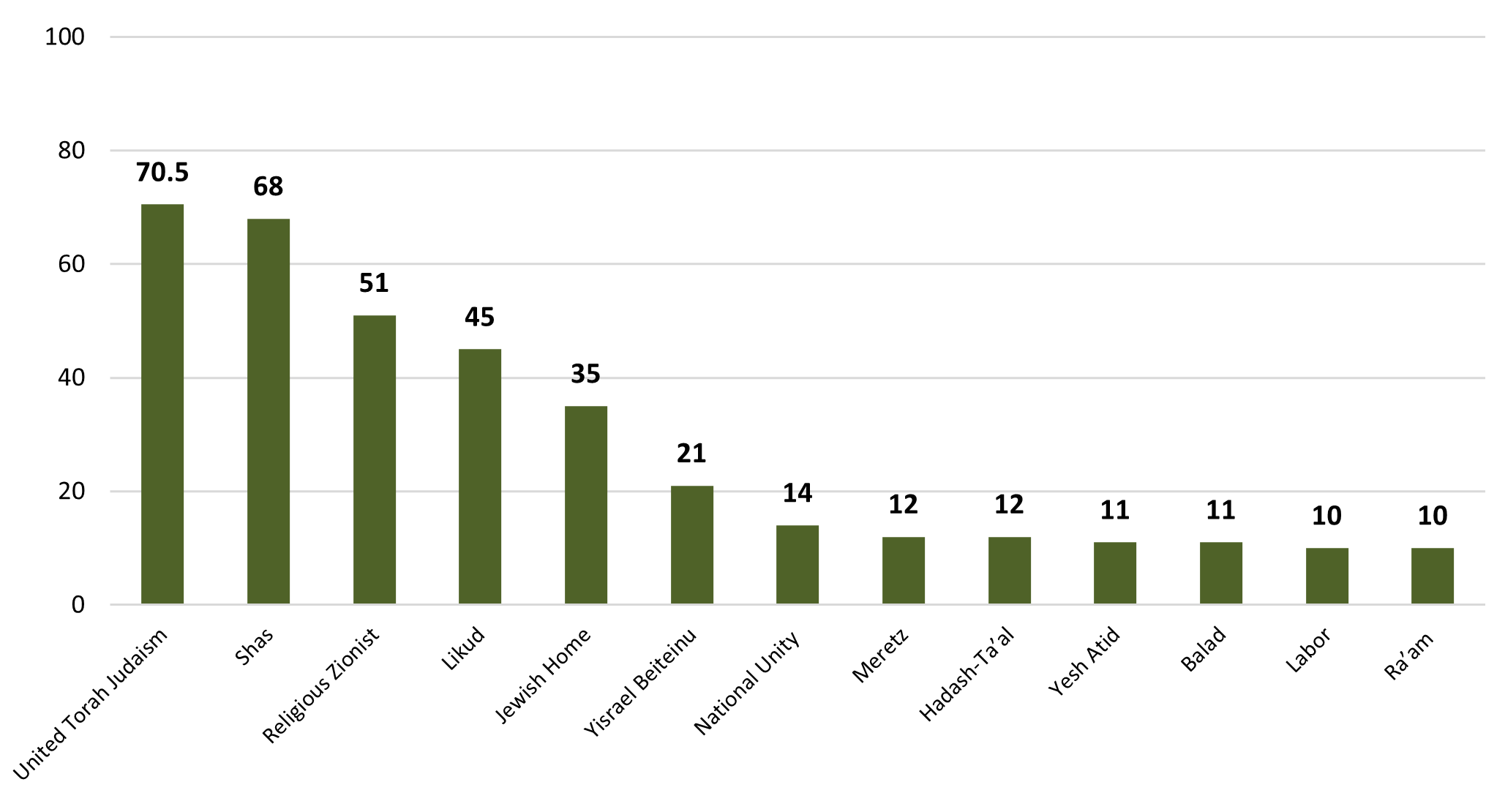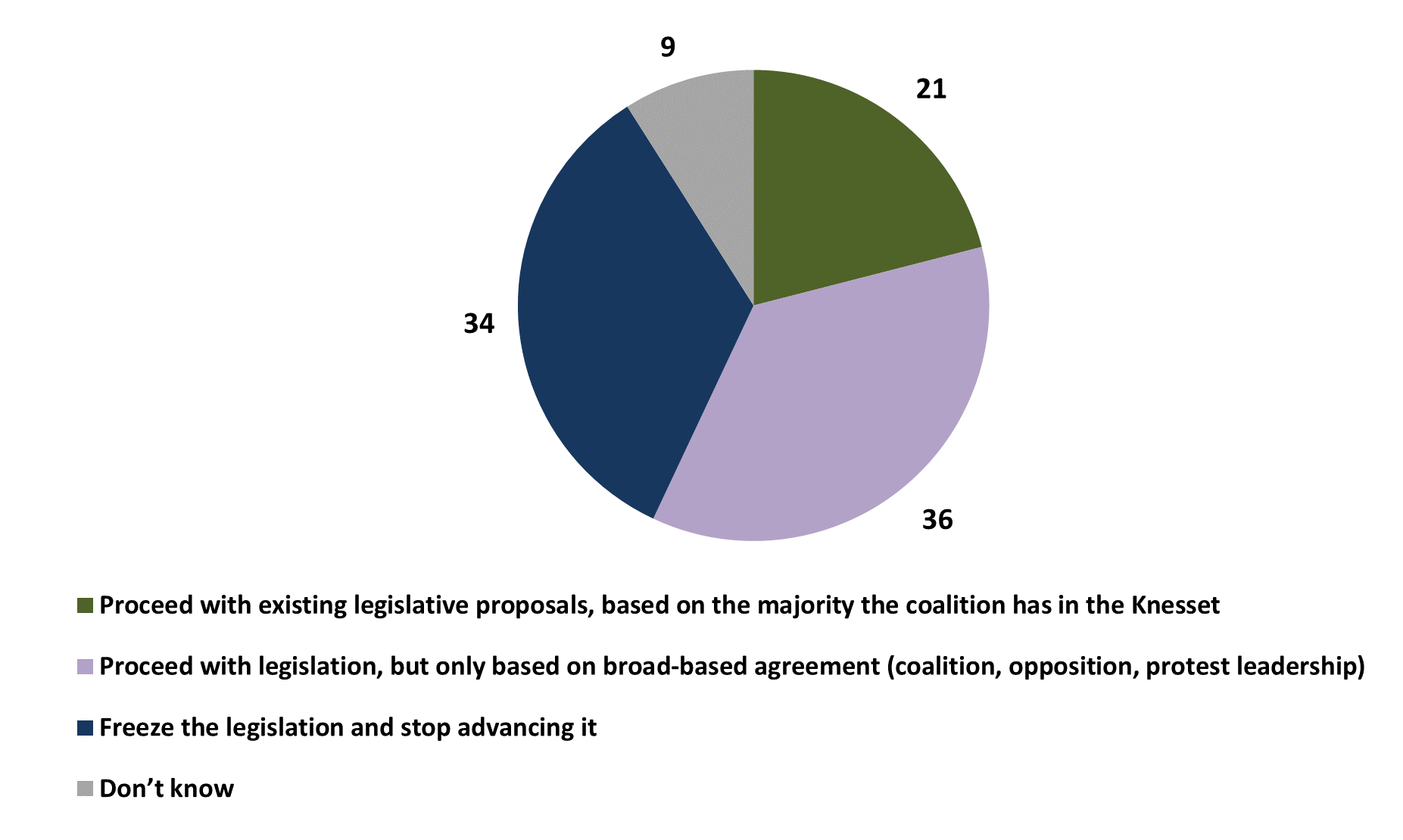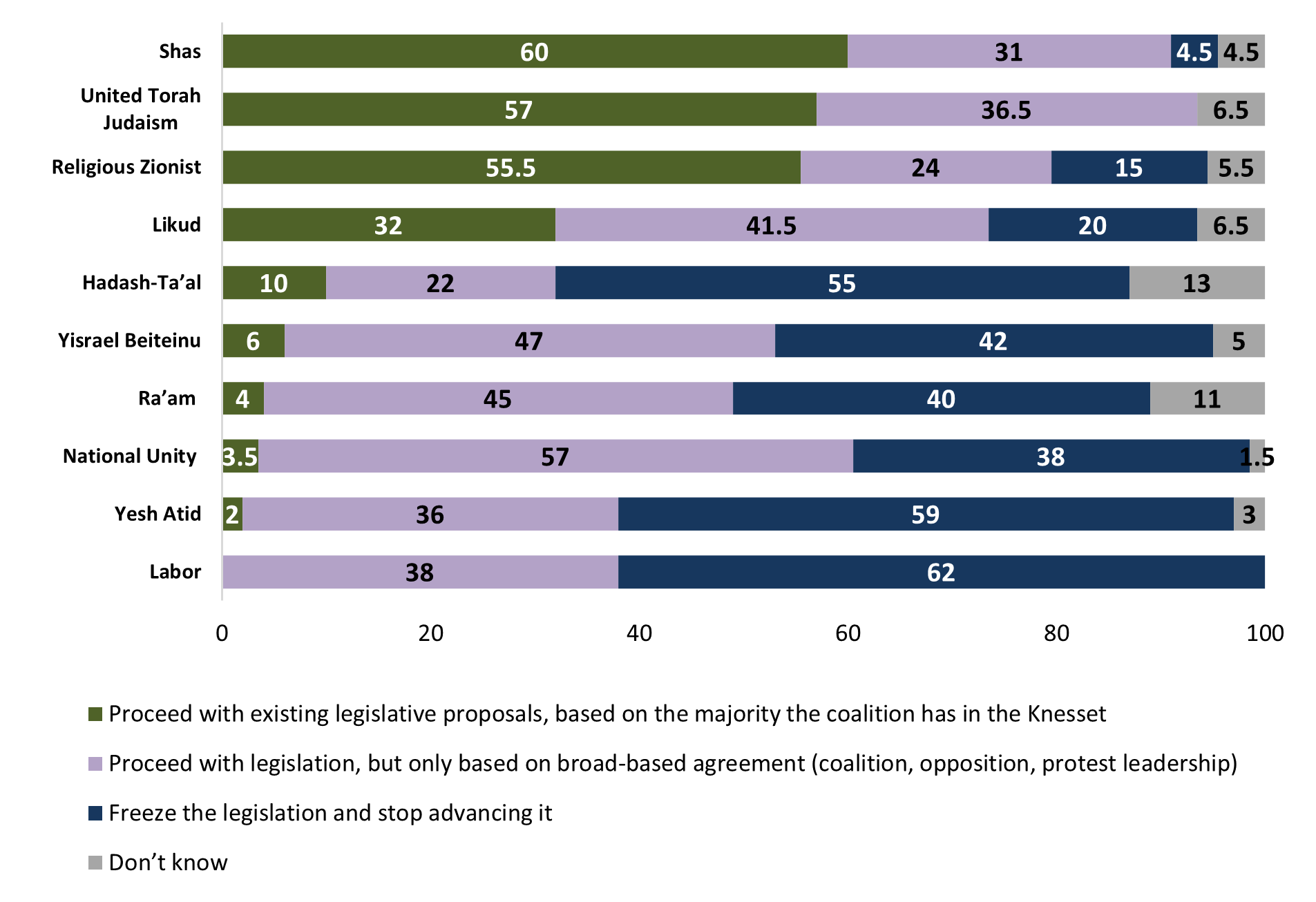Unreasonableness and the Judicial Overhaul - Survey Analysis
Data indicates that less than a third of the public supports barring the Supreme Court from intervening in decisions by politicians or public officials.

Photo by Arik Marmur, Flash90
Over a series of surveys conducted during the period of February to April 2023 by IDI’s Viterbi Family Center for Public Opinion and Policy Research, respondents were asked their opinions regarding the various elements of the proposed judicial overhaul.
The Standard of Extreme Unreasonableness – The data indicates that less than a third of the public supports barring the Supreme Court from intervening in decisions by politicians or public officials, even if they are found by the justices to be “grossly unreasonable.” Only 14% support completely barring the Court from intervening on this basis compared to a large majority (59%) who oppose this type of legislation.
Do you support barring the Supreme Court from intervening in decisions by politicians or public officials, even if they are found by the justices to be “grossly unreasonable?” (%, Total Sample) [1]

Support barring the Supreme Court from intervening in decisions by politicians or public officials, even if they are found by the justices to be “grossly unreasonable.” (%, Total Sample, By Vote in the Knesset Elections)

Among Likud voters who oppose barring the Supreme Court from intervening in decisions by politicians or public officials – 54% say that the Likud Knesset faction actions regardng the judicial overhaul has weakened their support for the party.
Regarding the Government’s proposal for the judicial overhaul, which of these options do you prefer? (%, Total Sample)[2]

Regarding the Government’s proposal for a judicial overhaul, which of these options do you prefer? (%, Total Sample, By Vote in the Knesset Elections)

[1] The data is the result of analysis of four surveys conducted during the first half of 2023 that included 3,077 respondents. The surveys constitute a representative sample of the adult population in Israel aged 18 and over. The maximum sampling error was ±1.8%
[2] The data is based on a survey conducted in April 2023 that included 758 respondents. The surveys constitute a representative sample of the adult population in Israel aged 18 and over. The maximum sampling error was ±3.56%
